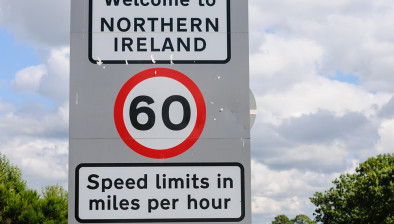NI: Girl connected with anti-social behaviour due to MLA’s Facebook posts has damages claim dismissed
Sitting in Ballymena Court, District Judge Gilpin, dismissed a claim for damages brought by a teenage girl against an MLA, concluding that she had failed to establish liability. The girl sought damages for breach of the statutory tort of harassment under the Protection from Harassment (NI) Order 1997, and for the Misuse of Private Information in relation to references made to her by the MLA on Facebook.

About this case:
- Judgment:
Anti-social behaviour
After a lengthy period of anti-social behaviour in his North Antrim Constituency, Paul Frew MLA “sought to engage directly with young persons who he thought might be involved in anti-social behaviour including meeting with them to highlight the effects of such behaviour and the potential consequences”.
Mr Frew had been contacted by various constituents who were fearful and frustrated by incidents including “eggs, stones and ball-bearings being thrown at people and property, and takeaway food being smeared on houses and property otherwise being damaged”.
Mr Frew and others were posting comments on Facebook about anti-social behaviour in Broughshane, and the girl (GK) stated that on reading the posts on Mr Frew’s page, GK believed she was aware of the identity of a young person who some of the posts were implicating in the anti-social behaviour.
After ‘tagging’ this young person’s name under the comments in an attempt to allow him to see what was being posted on the page, GK brought herself to the attention of those taking part in the Facebook conversation about anti-social behaviour on Mr Frew’s Facebook page.
Following this first exchange, the Facebook conversation between Mr Frew and GK escalated over a number of days in February 2016. Judge Gilpin set out the details of these exchanges, which included both public and private messages between GK and Mr Frew.
Distress
GK, who was 14 at the time of the Facebook exchanges said that she was upset and annoyed to the extent that she felt “branded”, as a result of Mr Frew’s actions, specifically:
(1) Posting on both his own Facebook page and on the Broughshane Residents page the allegation made by a resident of Harryville that she had been present in Harryville in January when a door had been kicked in;
(2) Posting on the Broughshane Residents page, in the context of a discussion about anti-social behaviour, GK’s name and home village; and
(3) Not deleting promptly some of the comments made by others on his Facebook page until after receipt of a letter before action dated 26 February 2016.
Harassment
Judge Gilpin discussed the Protection from Harassment (NI) Order 1997, which provides both criminal and civil remedies for someone who is subjected to harassment. Furthermore, the elements that must be established to find liability for harassment were set out in Dowson v Chief Constable of Northumbria Police EWHC 261.
Considering Majrowski v Guy’s and St Thomas’s NHS Trust 1 AC 224, he found that the impugned conduct did not constitute conduct of such seriousness that an actionable remedy could be provided – stating that some of the comments made by others on Facebook “while undoubtedly unpleasant and unattractive in nature were neither targeted at GK nor any other individual” and did not deter GK from making her presence known to others by first tagging a friend and then engaging in exchanges with others.
Accordingly, Judge Gilpin said Mr Frew “acted throughout in good faith in making considerable attempts to address the issue of anti-social behaviour in certain areas of his constituency”, and was satisfied that Mr Frew had “thought rationally about the impugned posts and had formed the view that to publish them was for the permissible purpose” of preventing and detecting crime.
Misuse of Information
While there is no generalised tort of invasion of privacy in NI, the tort of misuse of private information makes it unlawful to disclose private information about a person without lawful authority to do so – “embodying the values enshrined in Article 8 (Right to Respect for Private and Family Life) and Article 10 (Freedom of Expression) of the European Convention on Human Rights”.
GK said “the allegation made by an unnamed person that Mr Frew posted on both his Facebook page and on the Broughshane Residents Facebook page”, amounted to misuse of her private information.
In the circumstances, and considering Re JR 38’s Application for Judicial Review (NI) 2015 UKSC, Judge Gilpin found that when GK “allowed herself to be present on a number of occasions in public settings with others carrying out such acts”, she could not claim to enjoy an expectation of privacy in relation to postings about it.
It was also important to take into account that Mr Frew did not make an allegation against GK, “rather he only repeated an allegation that someone else had made to him and afforded GK the opportunity to respond to it”; making it clear that his purpose in posting the allegation was to allow GK to “explain or least tell us your side of story”.
Furthermore, GK had “voluntarily chosen to involve herself in the conversation” on Mr Frew’s Facebook page about the anti-social behaviour including “tagging the name of one person who she considered was being accused by others as being a ring leader” and initiating an exchange with Mr Frew on Messenger.
With such postings, GK indicated “inferred consent being given by her to take part in online discussions about anti-social behaviour in the area”.
Conclusion
Judge Gilpin concluded that GK failed to establish liability against Mr Frew and her claim against him was dismissed.









